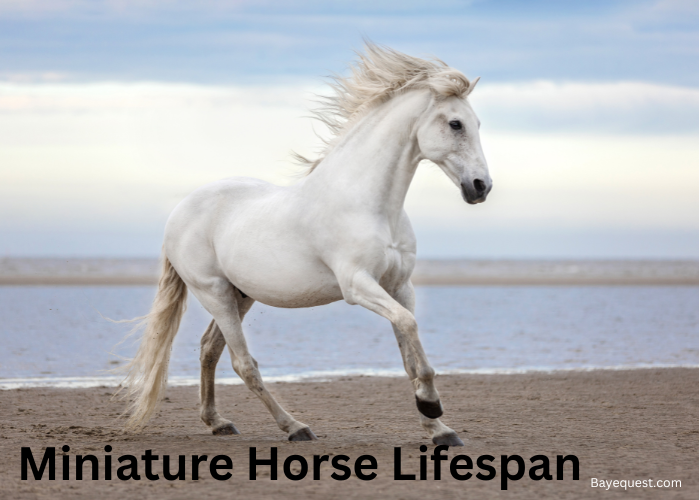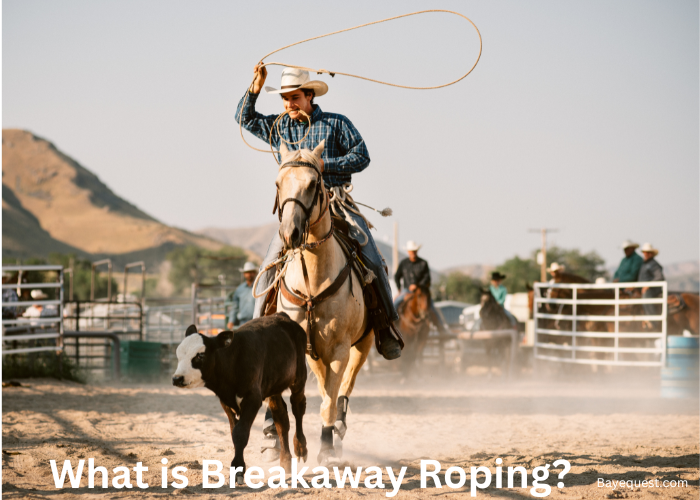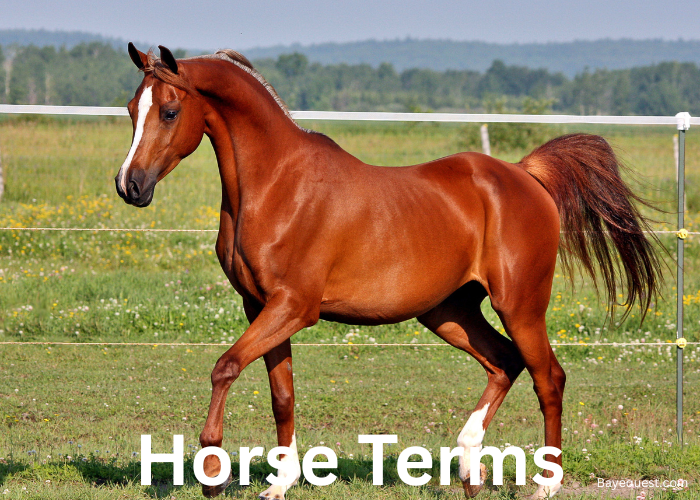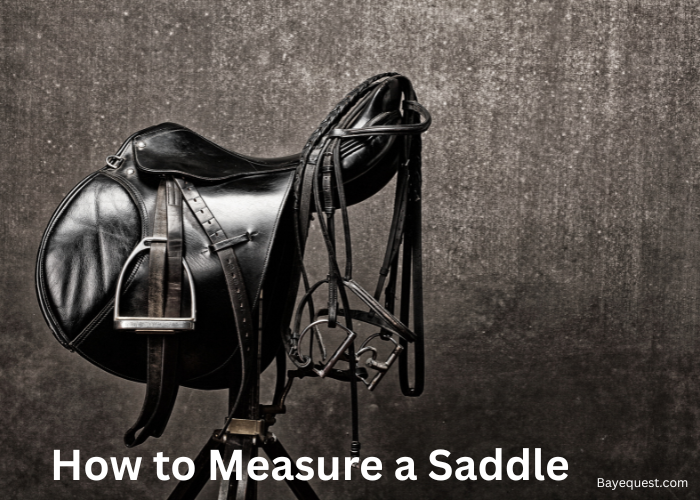Miniature horses are more than just tiny versions of their larger counterparts. They’re adorable, charming, and surprisingly hardy.
But how long do these pint-sized equines actually live? If you’re thinking about getting one or already have one trotting around your backyard, understanding their lifespan is essential.
After all, a miniature horse isn’t just a pet. It’s a commitment that can span decades.
Several factors influence how long they live, from genetics to daily care. Curious to know what it takes to give them a long, happy life?
Let’s find out.
What is the Average Miniature Horse Lifespan? Key Takeaway
With proper care, miniature horses live 25 to 35 years. Key factors affecting their lifespan include genetics, diet, exercise, and healthcare. Regular vet check-ups, a balanced diet, and daily exercise help increase their longevity. Keeping their living environment clean and stress-free also plays a big role in their overall health.
What is a Miniature Horse?
A miniature horse looks just like a regular horse but much smaller. It’s not a pony, though.
These horses are bred to keep the same proportions as their larger cousins, just in a tiny size.
Most miniature horses stand no taller than 38 inches at the withers, which is the highest point of their shoulder.
Like full-sized horses, miniature horses come in many colors and coat patterns. Some are kept as pets, while others compete in shows in events like halter and driving.
Many are also trained as therapy animals or guide horses because of their gentle and friendly nature.
Miniature horses have a long history. They originated in Europe, where selective breeding, often involving Shetland ponies, helped reduce their size.
Today, they offer all the elegance and charm of a full-sized horse but in a more compact package.
Pros and Cons of a Mini Horse
Pros:
- They are easier to handle and care for compared to full-sized horses.
- Require less space, making them suitable for smaller properties.
- Are sweet and affectionate and great as companion animals and therapy horses.
- Eat less than full-sized horses, reducing feed costs.
- Smaller equipment and accessories are generally cheaper.
- They offer long-term companionship.
Cons:
- Prone to obesity if overfed due to their small size.
- More prone to certain genetic conditions.
- Can be stubborn and need consistent training.
- Their size may tempt owners to overlook proper discipline.
- Some areas may classify them as livestock, requiring special permits.
History and Origin of Mini Horses
Miniature horses have a long and fascinating history. Their roots trace back to Europe, where they were selectively bred to achieve their small size.
In the 17th century, miniature horses were often kept as pets by European nobility. Their small stature and unique charm made them prized companions in royal courts.
The modern miniature horse was shaped through careful breeding, to maintain a compact yet sturdy frame.
In the 19th century, they were also used in coal mines in England and Belgium due to their ability to navigate tight spaces.
In the mid-20th century, miniature horses arrived in the United States. Breeders focused on refining their appearance while preserving their gentle nature.
Over time, they became popular as pets, show animals, and even therapy horses.
Today, miniature horses are recognized for their elegant looks, friendly disposition, and versatility.
They are cherished as companions and featured in shows, but their legacy as hardworking and charming animals remains.
Characteristics of the Miniature Horse
Size
Miniature horses are significantly smaller than full-sized horses. They stand between 34 to 38 inches tall at the withers, which is the highest point of their shoulder.
To put it into perspective, they are about the height of a large dog. Despite their small size, they maintain the same graceful and proportionate build as larger horse breeds.
Weight
These horses usually weigh between 150 to 350 pounds. Their weight varies depending on their build, diet, and overall health.
They are much lighter compared to standard horses, which can weigh anywhere from 900 to 2,000 pounds. Their lighter weight makes them easier to handle and manage.
Build
Unlike ponies, which often have stocky and sturdy bodies, miniature horses are bred to resemble full-sized horses. They have a well-proportioned body, with a refined head, straight legs, and a balanced frame.
Their body structure is sleek and elegant rather than compact and muscular, similar to breeds like the Arabian or Thoroughbred.
Coat
Miniature horses come in a wide range of coat colors and patterns, just like their larger counterparts.
You can find them in bay, black, chestnut, gray, palomino, pinto, and more. Their coats can be smooth and sleek in the summer, while in winter, they may grow a thicker, fluffier coat to keep warm.
The coat quality can vary from silky and soft to coarse, depending on genetics and grooming.
Mane and tail
Mini horses have thick, flowing manes and tails. These can grow quite long and may require regular grooming to prevent tangles and matting.
Their manes and tails often enhance their elegant appearance, especially when well-maintained.
Some owners choose to braid the mane to keep it tidy, especially during shows or events.
Temperament and emotions
Miniature horses have a friendly and gentle nature. They are affectionate animals that enjoy human interaction.
Due to their small size and calm demeanor, they are often chosen as therapy animals or kept as pets. They are naturally curious, often approaching people with interest rather than fear.
These horses are also intelligent and quick learners. They respond well to positive reinforcement and can be trained for various activities.
Despite their friendly nature, they can sometimes show a stubborn streak, especially if they sense inconsistency.
How Long Do Miniature Horses Live?
Miniature horses usually live between 25 to 35 years. With proper care, some may even reach their late 30s.
Their lifespan is similar to that of full-sized horses. However, due to their smaller size, they often live a bit longer.
Genetics play a big role in how long they live. Good care also makes a difference.
A healthy diet, regular vet check-ups, and daily exercise are essential. Keeping their living space clean and stress-free helps too.
Many miniature horses have become beloved companions for decades. With the right care, they can live long, happy, and healthy lives.
Read also: How Long Do Draft Horses Live?
Factors Affecting the Lifespan of a Miniature Horse
Although miniature horses may be small, their care needs are anything but tiny. Many factors, from genetics to daily care, can influence how long they live.
Understanding these factors is key to helping your miniature horse live a long, healthy life. Let’s explore what makes the biggest difference.
Genetics
Genetics play a huge role in how long a miniature horse will live. Just like with people, some horses are born with great genes that set them up for a long, healthy life.
On the flip side, some bloodlines carry health issues that can cut a horse’s life short.
For example, conditions like dwarfism and metabolic disorders are more common in some miniature horses due to selective breeding.
That’s why it’s so important to know the horse’s lineage when buying or breeding. A healthy genetic background can make a big difference in how long they live.
Diet and nutrition
Proper feeding is crucial for a miniature horse’s longevity. Although these little horses may be small, they can easily gain weight if overfed.
Obesity puts a lot of strain on their joints and can lead to serious health problems like laminitis.
It’s tempting to spoil them with treats, but a balanced diet is way more important. To stay healthy, they need the right mix of hay, grains, and supplements.
It’s also a good idea to monitor their weight regularly and adjust their diet as needed. Good nutrition helps keep their immune system strong and their body functioning well.
Health care
Regular vet visits are non-negotiable if you want your miniature horse to live a long life.
These horses can develop health issues just like any other animal, so routine check-ups help catch problems early.
Vaccinations, dental care, and deworming are all essential parts of their healthcare routine. Dental issues, in particular, can sneak up on you, leading to pain and eating difficulties.
Keeping up with preventive care means fewer emergencies and a healthier, happier horse.
Plus, if they do get sick, early treatment can make a big difference in their recovery.
Exercise and physical activity
Miniature horses may be small, but they still need to move around. Regular exercise helps them maintain a healthy weight and keeps their muscles strong.
It also helps with mental stimulation, which is also important. Light activities like walking, trotting, or pulling a small cart can keep them fit.
Just be careful not to overdo it. Short, consistent sessions are better than long, intense ones.
Without enough exercise, they can gain weight, leading to problems like joint pain and metabolic disorders. A little movement every day goes a long way.
Living environment
Where a miniature horse lives can impact its health and happiness. They thrive in a clean, safe, and calm environment.
Ideally, they should have access to a pasture where they can graze and move around freely. Proper shelter is a must to protect them from extreme weather.
Stressful conditions, like overcrowding or constant noise, can affect their well-being. Social interaction is also important since they are social animals by nature.
Whether it’s with other horses or their human caretakers, feeling part of a group keeps them mentally balanced.
Dental and hoof care
Don’t underestimate the importance of dental and hoof care. Miniature horses can develop dental problems due to their small jaw structure.
Routine dental check-ups help catch issues like sharp points or uneven teeth. If their teeth aren’t in good shape, they might have trouble chewing, which can lead to weight loss or colic.
Hoof care is just as important. Regular trimming prevents hoof issues that can cause pain and lameness.
Skipping these basics might seem minor at first, but they can snowball into major health problems later.
Mental stimulation and companionship
Miniature horses aren’t just cute; they’re also smart and social. They need mental engagement to stay happy and balanced.
Without enough interaction, they can get bored and develop bad habits like cribbing or pacing.
Spending time with them, teaching them simple tricks, or even just grooming regularly can boost their mood.
Socializing with other horses is also important because they naturally thrive in a herd setting. If they feel lonely or neglected, it can affect both their mental and physical health.
Keeping their minds active is just as important as keeping their bodies healthy.
How to Increase the Lifespan of a Horse
Proper care, attention, and love are necessary to ensure your horse enjoys a long, healthy life.
Here are some key strategies to help extend your horse’s lifespan:
Provide a balanced diet
Feeding your horse the right nutrients is fundamental. A diet rich in high-quality forage, supplemented with grains and necessary vitamins, supports overall health.
As horses age, their nutritional needs may change, so it’s essential to adjust their diet accordingly.
You can consult with a veterinarian or equine nutritionist to help you tailor a feeding plan.
Ensure regular exercise
Consistent physical activity maintains muscle tone, joint flexibility, and cardiovascular health.
Daily turnout and light exercise, such as walking or trotting, contribute to overall fitness.
Adjust exercise routines to match your horse’s age and health status.
Schedule routine veterinary care
Regular check-ups allow for early detection and management of potential health issues.
Vaccinations, dental care, and parasite control are vital components of preventive healthcare.
Establishing a consistent veterinary schedule can help you maintain your horse’s well-being.
Maintain proper hoof and dental care
Healthy hooves and teeth are crucial for a horse’s comfort and longevity.
Regular hoof trimming and dental examinations prevent issues that can lead to pain or difficulty eating.
Neglecting these areas can result in complications affecting overall health.
Manage weight and body condition
Keeping your horse at an optimal weight reduces the risk of obesity-related conditions such as arthritis and laminitis.
Assess their body condition regularly and adjust feeding and exercise routines as needed. A healthy weight contributes to overall vitality and reduces strain on joints and organs.
Provide mental stimulation and social interaction
Horses are social animals that thrive on interaction.
Regular engagement with other horses or humans, along with environmental enrichment, supports mental well-being.
A stimulated and happy horse is less prone to stress-related issues, contributing to a longer, healthier life.
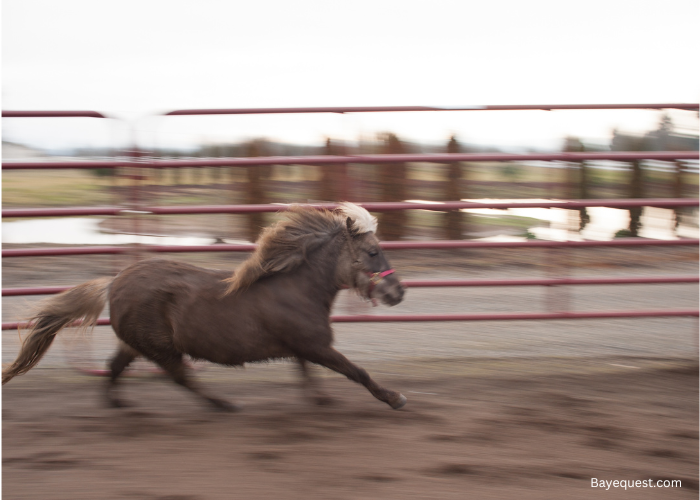
Miniature Horse Health Issues
Miniature horses are adorable and beloved, but they can face specific health challenges. Here’s a breakdown of common issues:
Hyperlipidemia and hyperlipemia
These conditions involve high fat levels in the blood. Hyperlipemia is the more severe form and can be life-threatening.
Miniature horses are especially prone to these problems, particularly during stress or if they stop eating. When they don’t consume enough calories, their bodies use fat reserves for energy.
In minis, this can overwhelm the liver, leading to fat buildup and liver issues. Early signs include tiredness, reduced appetite, and weakness.
Colic
Colic means abdominal pain and can have various causes like gas buildup, blockages, or twisted intestines.
Miniature horses are susceptible, and even minor digestive issues can escalate quickly due to their size.
Signs include restlessness, pawing, rolling, and not eating. Immediate veterinary attention is crucial, as colic can be fatal if untreated.
Dental issues
Because of their small mouths, miniature horses often have dental overcrowding. This can lead to misaligned teeth, making chewing difficult and increasing the risk of sharp points or hooks forming.
These dental problems can cause pain, trouble eating, weight loss, and behavioral changes. Regular dental check-ups are vital for their well-being.
Dwarfisn mutations
Dwarfism in miniature horses is linked to mutations in the ACAN gene, which affects cartilage.
Foals with these mutations may have shortened limbs, domed heads, and spinal deformities. Some cases lead to severe health issues, such as breathing difficulties and joint problems.
Genetic testing is recommended for breeding to avoid passing on these mutations.
Difficult births (Dystocia)
Due to their small size, miniature mares often have challenging deliveries. The risk of dystocia, or difficult birth, is higher compared to larger breeds.
Foals may be proportionally large relative to the mare’s pelvis, leading to complications.
Close monitoring during pregnancy and having a vet present during foaling can help manage these risks.
Obesity
Miniature horses are prone to obesity, often due to overfeeding and lack of exercise. Their small size means they need fewer calories than larger horses, and it’s easy to overfeed them.
Obesity can lead to health problems like insulin resistance, laminitis, and joint stress.
A balanced diet and regular physical activity are crucial to prevent excessive weight gain.
Signs of Aging in Miniature Horses
As miniature horses age, they exhibit several signs indicative of the aging process. Common signs of aging in miniature horses include:
Dental changes. Older miniature horses may experience tooth loss or wear, leading to difficulties in chewing and digesting food.
Weight fluctuations. Aging horses might show unexpected weight loss or gain.
Coat condition. The coat may become rougher or exhibit changes in color, such as the appearance of white hairs around the eyes and muzzle. These alterations can signal advancing age.
Mobility issues. Stiffness, reduced mobility, or signs of discomfort during movement can indicate joint problems.
Behavioral changes. A decrease in energy levels, increased sleep, or reduced interest in social interactions may reflect the slowing down associated with aging.
Vision impairment. Development of cataracts or other eye issues can lead to partial or complete vision loss.
FAQs
How much does a miniature horse cost?
The price of a miniature horse varies based on factors such as age, pedigree, conformation, and training. Generally, prices can range from under $1,000 to well over $100,000. Most buyers spend between $1,000 and $8,000 for a miniature horse.
Is a mini horse the same as a pony?
While both miniature horses and ponies are small equines, they are distinct. Ponies are defined by their height, standing under 14.2 hands (58 inches). Miniature horses, on the other hand, are bred to resemble full-sized horses in miniature form and usually stand no taller than 38 inches. Unlike ponies, miniature horses have body proportions similar to larger horses.
Can you ride a miniature horse?
Yes, you can ride a miniature horse. However, due to their small stature, they are only suitable for children riding. They can carry a maximum of 20% of their body weight. Given that miniature horses often weigh between 150 to 350 pounds, this limits their carrying capacity to approximately 30 to 70 pounds, including the weight of any tack.
Conclusion
Miniature horses make amazing companions. They’re small, adorable, and full of personality.
But like any pet, they need the right care to live long and happy lives. Regular vet visits are a must to keep them healthy.
A balanced diet helps prevent obesity and other health issues. Daily exercise keeps them fit and active.
You also need to keep their living space clean and safe. Don’t forget to show them plenty of love and attention too.
When you take good care of your miniature horse, you’ll enjoy many happy years together.




